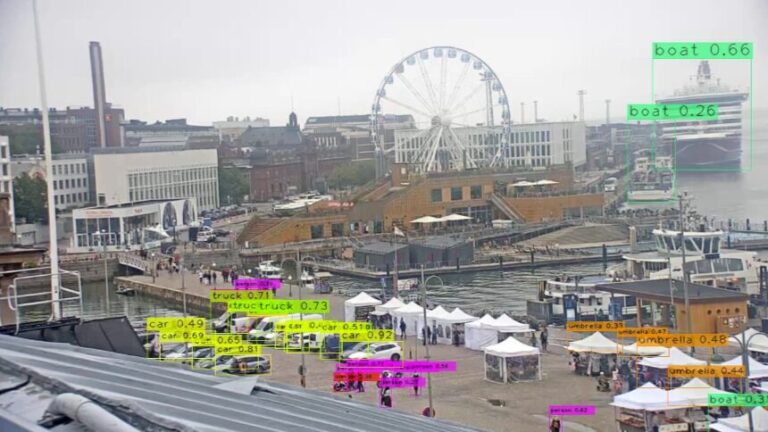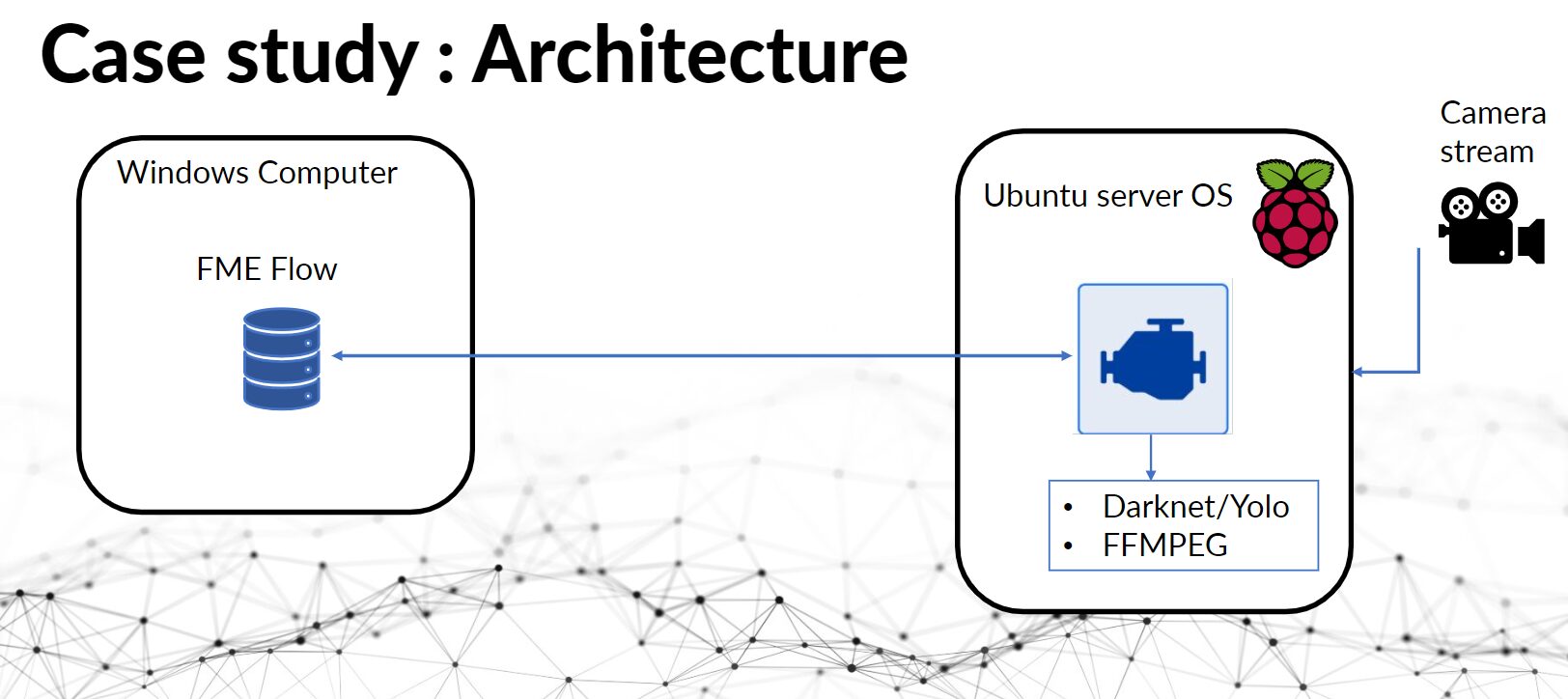
We’re thrilled to announce that our edge computing solution using the Raspberry Pi 5 and FME’s Remote Engine is officially up and running! 🎉
Our Process:
- Frame Capture from Video Streams: We use the Raspberry Pi to extract frames from live video feeds in real-time, ready for immediate processing.
- Image Preparation with FME Remote Engine: FME Engine processes images locally on the Pi, optimizing them for subsequent analysis.
- Object Detection using YOLO via Darknet: Advanced AI models (YOLO) integrated through Darknet identify objects in the images, ensuring accurate detection of key elements.
- Output Refinement with FME Remote Engine: FME further refines and filters detection results, improving the accuracy and relevancy of the data.
- Conditional Reporting to FME Flow: Comprehensive reports are sent to the main FME Flow instance only when specific objects are detected with a defined probability, reducing unnecessary data transmission.

But the journey wasn’t without its challenges. While the Raspberry Pi 5 hardware is impressive, we faced unexpected difficulties with operating systems.
💡 What We Learned:
✅ Edge Workflow Success: The Pi’s enhanced performance, combined with FME’s powerful data handling, truly shines in edge computing scenarios.
⚠️ Challenges Faced:
- Raspberry Pi OS:
- Compatibility Issues: Some dependencies and libraries required by FME weren’t readily available or compatible.
- Installation Hurdles: Setting up FME Engine on Raspberry Pi OS was more complex than anticipated.
- Ubuntu 24.04 ARM:
- Camera Compatibility: The Raspberry Pi camera wasn’t easily compatible due to driver differences.
✨ Our Solution:
We transitioned to Ubuntu 24.04 ARM and adapted our video input by using a YouTube stream.
- Seamless Integration: Ubuntu’s compatibility with FME allowed for smoother installation and operation.
- Improved Support: Extensive documentation and community support for Ubuntu on ARM helped us overcome obstacles quickly.
🌟 Benefits of Our Approach:
- Real-Time Data Processing: By performing computations directly on the Raspberry Pi, we achieve immediate insights without delays.
- Bandwidth Optimization: Local processing reduces the need to transmit large amounts of data over the network, saving bandwidth.
- Cost-Effective Scalability: Utilizing affordable hardware like the Raspberry Pi 5 makes it easy to scale up edge computing nodes as needed.
- Enhanced Flexibility: FME’s Remote Engine handles diverse data formats and workflows, allowing us to adapt quickly to different scenarios.
- Improved Privacy and Security: Processing data at the edge minimizes the exposure of sensitive information over networks.
- Simplified Integration of Sensors: The ability to easily add peripherals like USB cameras, GPS modules, and temperature sensors expands the scope of data collection.
🚀 Moving Forward:
- Testing with USB Cameras: Planning to integrate USB cameras, which have more universally supported drivers in Ubuntu.
- Exploring Additional Sensors: Expanding our setup to include GPS, temperature, and more for comprehensive data collection.
🔑 Key Takeaway: The operating system plays a crucial role in the success of edge computing projects. If you’re venturing into similar territory, consider using Ubuntu ARM on your Raspberry Pi for a smoother experience.


 Suomi
Suomi Svenska
Svenska
